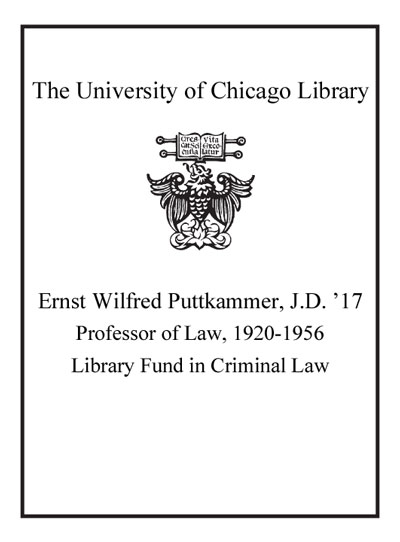Review by Booklist Review
Where interest in the former Yugoslavia goes beyond now infrequent headlines, these volumes will circulate. Honig and Both's analysis of "the largest single war crime in Europe since the Second World War" --the execution of thousands of Muslim men and expulsion of 23,000 Muslim women and children from Srebrenica in eastern Bosnia over 10 days in July 1995--blends detailed description based on testimony from survivors and Dutch UNPROFOR soldiers (assigned to the city's "safe zone" but unable to prevent or restrain Bosnian Serb "ethnic cleansing") with analysis of the moral dilemmas Europe and the U.S. faced (and did not resolve). Chief among those dilemmas was how to effectively "oppose ethnic cleansing and support the creation of safe areas, when one [is] unwilling to risk the lives of peacekeepers in the process of defending these safe areas." A very lucid presentation of European decision makers' dominant view of the Balkan conflict. Multidisciplinary, multinational scholars met at the University of New Mexico in Albuquerque in May 1994 to consider the relationship of state and society in Yugoslavia over the past half century, addressing issues that offer some context for the horrors of recent years. With "a discrete historical era" ending in 1992 and formerly restricted archives open, the essays' authors examine the roles of Tito, the military, and historians in legitimating (and delegitimating) Yugoslavia; rural politics, culture, feminist movements, and religious communities as contributors to growth of a civil society distinct from the state; and the interaction of nation and state within Macedonia, Bosnia, and Serbia before the nation's breakup. Fairly academic, but full of useful information. --Mary Carroll
From Booklist, Copyright (c) American Library Association. Used with permission.
Review by Publisher's Weekly Review
Srebrenica not only is the name of an obscure town in former Muslim Bosnia but, like Auschwitz and Dachau, has come to signify torture and genocide. Both authors of this book are Dutch, as was the U.N. battalion sent to Srebrenica on its ill-conceived mission to maintain peace. They have documented events with imposing detail and the impartiality of a surgeon reporting on the progress of a malignancy. From the beginning of the Serb siege, around July 8, 1995, to Srebrenica's fall and the massacre of many of its Muslims seven days later, the events at the scene are reconstructed in depth, as are the global negotiations and diplomatic and political imperatives that shaped U.N. policy. What emerges is unequivocally incriminating: of the Western powers, which remained more interested in image and national agendas than in humanitarian ones; of the U.N., whose bureaucracy and dependence on the (nonexistent) will of its powerful members rendered it impotent; and of the Serbs as aggressors. Political and military misjudgment at high levels leaves readers stunned, as well as Serbian manipulation of the much greater Western powers through fear. Culpability is so blatant in this report that the analysis in the last section is mostly denouement. Nothing can rectify past horrors, but, as today's regional conflicts multiply, this book targets crucial changes needed if U.N. peacekeeping is to succeed in the future. (Mar.) (c) Copyright PWxyz, LLC. All rights reserved
(c) Copyright PWxyz, LLC. All rights reserved
Review by Kirkus Book Review
By focusing on the single most horrific event in the Bosnian war, the authors reveal in compelling detail the complex and ambiguous nature of international involvement in that conflict. In July 1995 the ``safe area'' of Srebrenica in eastern Bosnia fell to Bosnian Serb forces, despite the presence of Dutch peacekeeping troops. Some 20,000 women and children were deported. Several thousand Muslim men, both soldiers and civilians, were killed in cold blood by the Bosnian Serb army. Honig and Both's presentation of these enormously complex and frustrating events serves as a general indictment of all the circumstances surrounding the tragedy. The authors are Dutch specialists in war and defense studies, and their account dwells heavily on the military and political considerations, including the role of Dutch combat forces, the only UN forces serving in that area. This meticulous and honest reconstruction of events leaves no party unblemished, from the warring armies to UN officials. (Dutch soldiers, for instance, were held hostage by both Bosnian Army and Bosnian Serb forces.) Sharp accusations are leveled at the Serbian leadership itself, whom the authors consider guilty of pursuing genocide as ``part of a deliberate strategy.'' If there is a clear villain in this story, it is General Ratko Mladic, commander of the Bosnian Serb army. If there is a hero, it is certainly General Phillippe Morillon, of the UN forces, who valiantly attempted to save Srebrenica by personal initiative. Above all, Srebrenica questions the morality of the international community's policies in Bosnia. ``Was it right,'' the authors ask, ``to have opposed ethnic cleansing and instituted `safe areas' in eastern Bosnia, if one was unwilling to put one's life at risk to protect the people in those areas?'' Srebrenica is a penetrating and thoughtful response to this vexing and complex question.
Copyright (c) Kirkus Reviews, used with permission.
Review by Booklist Review
Review by Publisher's Weekly Review
Review by Kirkus Book Review

